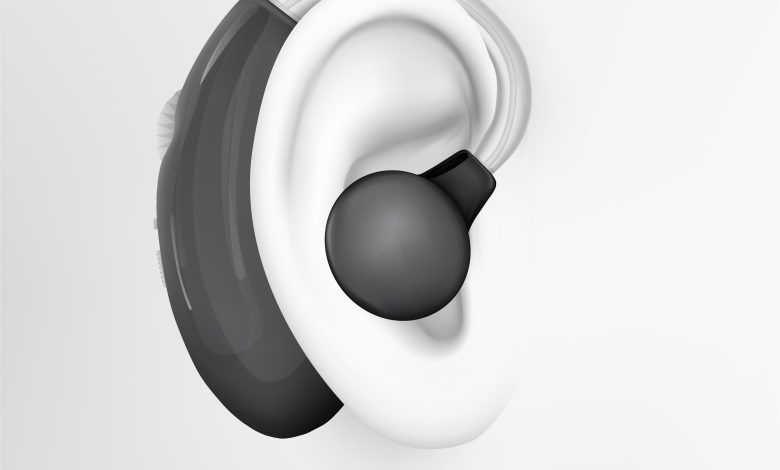Some Of The Benefits Of Using Hearing Aids In Singapore

A common health issue, hearing loss affected almost 1.4 billion individuals worldwide in 2017, or 18.7% of the world’s population. Nevertheless, few people who need hearing aids Singapore utilise them, even though hearing loss is often expected.
One of our primary senses, hearing, like vision, affects our mental, social, and physical health. We put our general health in danger when we damage our hearing. We don’t discuss enough the numerous potential health benefits of utilising hearing aids to improve our hearing.
According to studies about ten years ago, hearing aids improve the overall quality of life, and more of these studies are now being completed. According to experts, this is excellent news for public health since hearing loss is far easier to repair than many of the problems it may result in.
Here are the top five reasons for using hearing aids to treat hearing loss for those still unsure.
1. Reduced Chance of Cognitive Decline
As we age, our brain cells lose their ability to connect, a process called “brain atrophy” or simply “cognitive decline.” Additionally, hearing loss raises your chance of cognitive deterioration.
This problem arises because untreated hearing loss can lead to the degeneration of the brain regions involved in speech recognition.
As a result, as time passes, your risk of cognitive impairment rises and your ability to comprehend people around you deteriorates. It may increase your risk of cognitive decline as you age, even if you are still young. With help, though, you may slow the procedure.
Untreated hearing loss has been linked in several studies to a higher risk of dementia and worse cognitive function. The most apparent suffering appears among those who do not use hearing aids to treat hearing loss. As a result, wearing hearing aids can lower your risk of cognitive deterioration.
2. Lessens Propensity for Mental Health Problems
Numerous studies have shown a connection between hearing loss and depression. A 2009 research found that among individuals under 70, the chance of developing depression rose by 5% with every incremental reduction in hearing capacity (measured as the signal-to-noise ratio, or SNR).
One explanation might be the loss of social confidence that comes with hearing issues. Conversations are difficult when you can’t hear things clearly, and people give up trying.
Another explanation might be that hearing loss makes our auditory signals from the brain weaker, which makes our brains work more challenging to comprehend sounds and leads to a loss of function in other processes.
Our neural networks, particularly those that control the symptoms of depression, may remodel, changing the way our brain works.
We might reasonably conclude from these perceptions that an ear machine might assist you in addressing your mental health difficulties.
3. Decreases Anger connected to tinnitus
According to clinical research, hearing aids provide tinnitus sufferers two advantages:
Less awareness of the illness exists among patients.
They improve communication by lessening the bothersome impression that speech and noises are obscured by tinnitus.
Hearing loss reduces the stimulus from outside sounds, raising tinnitus awareness. The structures of the auditory pathway may no longer operate properly when input decreases.
The lack of auditory information triggers neural plasticity, which usually results in tinnitus. The manifestation of neural plasticity, which can restore hearing function, may also be triggered by outside noise. Tinnitus may be treated for a very long time with the help of this external stimulation.
4. Added Vitality/Less Fatigue
Our brain is necessary for all sensory functions, such as speaking, hearing, and understanding. The auditory nerve carries the electrical impulses that the sensory hair cells in the inner ear create from the sounds the outer ear has captured to the brain.
Hearing loss may be psychologically taxing since the brain has to work harder to interpret the information it gets from the inner ear.
Correct usage of hearing aids enhances speech and listening comprehension and lessens listening fatigue.
5. Reduces the Potential for Injury from Loss of Balance
According to research from John Hopkins University, people with minor hearing loss were shown to be more prone to losing their balance and falling. Additionally, as hearing loss progresses, so does the likelihood of their falling.
Two explanations might underlie this link. People are more likely to trip and fall with the poor hearing because they are less aware of their surroundings. Another problem is that the brain may not pay as much attention to stride and balance, which both need mental concentration if it is overworked from dealing with hearing loss.
Thus, using an earpiece lessens your risk of falling and hurting yourself.
To sum up, using hearing aids has more advantages than only helping with hearing loss. It is, therefore, wise to choose them.
Summary
Hearing loss affected almost 1.4 billion individuals worldwide in 2017, or 18.7% of the world’s population. Few people who need hearing aids utilise them, even though hearing loss is often expected. Untreated hearing loss has been linked to a higher risk of dementia and worse cognitive function. Hearing aids provide tinnitus sufferers two advantages: Less awareness of the illness and less anger. Correct usage of hearing aids also enhances speech and listening comprehension. Using hearing aids has more advantages than only helping with hearing, therefore, it is wise to choose them.
Are you looking for free hearing test recently? Schedule an appointment with specialist Jglasses now !
Article released at The Blog Posting





